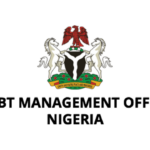A Don and the Director of Capital Market Studies, Nasarawa State University, Keffi, Nasarawa State Professor Uche Uwaleke, has expressed concerns over the significant funding mismatch in Nigeria’s budget implementation, highlighting the disparity between the country’s recurrent and capital expenditures. This mismatch has resulted in a low capital budget implementation rate of 25 percent, compared to a 100 percent implementation rate for recurrent expenditures. The National Assembly has also voiced its concerns, emphasizing the need for urgent action to address this issue and ensure that capital projects are adequately funded.
According to him, over the years, there is evidence to suggest that money raised from the debt capital market for capital projects ended up being used to meet recurrent needs in breach of the FRA 2007.
“This funding mismatch has worked against any effort to harness the country’s idle resources, “ he kamented.
In his Presentation at the 50th Inaugural Lecture of Nasarawa State University, Uwaleke argued that to enhance Debt Sustainability, borrowing plans should be linked more to debt service ceilings than other debt indicators such as Gross Domestic Product (GDP).
Consistent with the FRA 2007 and in view of the country’s huge debt burden, governments should borrow only to fund projects that are self-liquidating, the University Don stated.
His words: “In order to optimally diversify the country’s debt portfolio, other external funding windows such as the growing renminbi (RMB) market should be explored with the overarching objective of securing the best deals that reduce borrowing costs.
“The country’s immense idle resources can be unlocked by mobilizing funds from the capital market to develop the requisite skills and supportive environment, which I have collectively referred to as the Entrepreneurial Knowledge ecosystem.
“Unlocking Nigeria’s hidden wealth through the capital market will involve leveraging the market’s potential to mobilise, allocate resources and grow the entrepreneurial knowledge ecosystem.”
In order to achieve this he added, governments at all levels should deploy the right approach to Incentives for capital formation, Privatization of public enterprises via the capital market as well as Optimization of resources in ways that guarantee value for money.
“Only then will Nigeria be seen to be on the sure path to unlocking her massive hidden wealth, “ Uwaleke stated.
According to him, as Nigeria continues to witness improvements in the macroeconomic environment, the need to access long-term capital to accelerate economic growth cannot be overstressed.
To this end, he proposes the adoption of the IPO (Incentives, Privatization, Optimisation) approach to strengthen the capital market in Nigeria and harness long-term funds required to develop entrepreneurial knowledge ecosystem and unlock wealth.
Speaking on Entrepreneurial Knowledge Ecosystem and the Capital Market Nexus, Uwaleke noted that one of the most widely accepted definitions of the concept is by Mujahid, Mubarik and Naghavi, (2019:2) as ‘a collection of organized and interdependent factors that lead to the formation of a stimulating environment for entrepreneurial activities in a country’.
“Hence, entrepreneurial knowledge ecosystem can be seen as the interconnected network of actors, institutions, and processes that collectively enable the creation of wealth. A thriving entrepreneurial ecosystem is characterised by a skilled workforce, access to medium-to-long term capital, and a stimulating environment that enables innovation, “ he emphasises.
READ ALSO: Don bemoans neglect of academic counselling in schools
WATCH TOP VIDEOS FROM NIGERIAN TRIBUNE TV
- Let’s Talk About SELF-AWARENESS
- Is Your Confidence Mistaken for Pride? Let’s talk about it
- Is Etiquette About Perfection…Or Just Not Being Rude?
- Top Psychologist Reveal 3 Signs You’re Struggling With Imposter Syndrome
- Do You Pick Up Work-Related Calls at Midnight or Never? Let’s Talk About Boundaries







